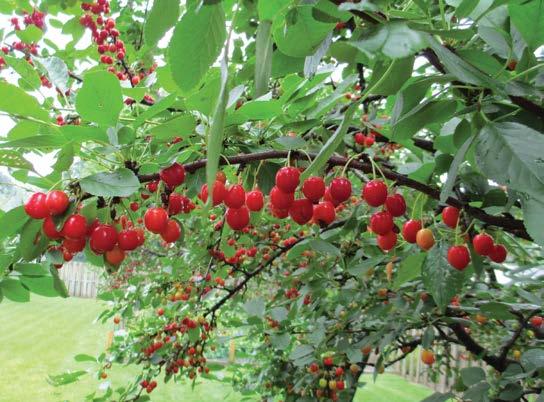
5 minute read
While 2021 feels very much like
“In respect of health implications of the pandemic, I see a wealth of opportunity for New Zealand and particularly the horticulture sector”, says Ian Proudfoot
While 2021 feels very much like 2020, now is the time to be bold
In the December 2020 edition of this magazine, I explored the question ‘Is it going to be OK’ as we waved 2020 goodbye and looked forward to 2021. I suggested for those that are prepared to be bold and see the world in front of them as it is today, the answer was undoubtedly yes. Sitting in Auckland, locked down at home again as I write, balancing work and home schooling and wondering why I didn’t buy some extra flour at the weekend, it does not feel like 2021 is very different to last year.
By Ian Proudfoot : KPMG
While I recognise that the immediate disruption of another lockdown will not last forever, the consequences of what we are living through will have fundamental and far-reaching impacts on all aspects of our lives. We know this is the case; our lifestyles are shaped by practices and institutions that arose from the Second World War, or more recently, the September 11th attacks and the Global Financial Crisis.
At a guess the Covid-19 pandemic will materiality shift how public health is managed moving forward at both a country and a global level, as well as focusing people more closely on their own personal health outcomes. I also expect it will reshape how our global supply chains work given that the system has been stretched to the limit, and in some cases failed, for much of the last year. In respect of health implications of the pandemic, I see a wealth of opportunity for New Zealand and particularly the horticulture sector. The sector grows products that are widely recognised as being integral to a healthy diet and maintenance

of a strong immune system. Greater focus on public health is likely to result in more demand for fruit and vegetables as governments look to address the root causes of poor health outcomes in their communities and consequently spotlight the role that diet plays. Global recognition of the strong health outcomes that New Zealand has achieved during the pandemic provides a platform for us to boldly leverage when talking to customers and consumers around the world about the attributes inherent within our produce. The picture for global supply chains is less positive. The country woke up to the supply chain challenges industry has faced for the last year when it became apparent that many Christmas presents would not be under the tree on Christmas Day. The media narrative at the time placed the blame largely on delays at Ports of Auckland, which to me was unfair as our understanding is this is just one pain point in a global supply chain which is being disrupted by a lack of equipment, increased operating costs and delays at both ports of departure and arrival due to Covid related protocols and testing. The problems we now see clearly with our supply chains have been building for years. The cost of operating a trade route to New Zealand is high, through both an economic and environmental lens, and we, in the main, are not a major market for global freight companies. Faced with significant challenges across their global businesses many may find it easier and economically viable to drop their New Zealand routes and focus on fixing the issues on the major trades between Asia, the US and Europe, which will have a more immediate and significant impact on the profitability of their businesses. Combine sea freight challenges with the uncertainties faced in relation to air freight while borders remain restricted and discretionary travel limited, and the picture becomes even less positive. It is likely government support will be required for months (and potentially years) to come to provide access to affordable air freight for exporters whose product value proposition relies on rapid transit to market. Without support the cost of air freight would be economically crippling for many of the exporters that rely on these services to secure premium returns in market.

There is a burning platform for change facing almost every export focused food producer in New Zealand. We grow far more product than we will ever eat in this country, so we have an inherent need to sell food to the world, both to generate economic wealth and secure our own food system. What the last year has taught us is that the systems and processes that we rely on to connect with customers and consumers are not as certain or reliable as we believed them to be.
Now is the time to be bold in rethinking supply chains. Recognising that we are an expensive place to ship product from, we need to be certain we are growing products that will command sufficient premium to cover increased supply chain costs into the future; this may mean what we grow has to evolve or change. It may mean that we need to explore new ownership or partnership models around freight channels, is now the time for an airfreighting or shipping cooperative? It may mean more product is stored, processed and packed in market, or even grown to our heat, light and water recipes in controlled cropping environments overseas. The only thing we should be certain about is that nothing should be off the table as we look to capture the opportunities that our successful health outcomes have created for the food and fibre sector and horticulture businesses more specifically.
Prune and heal with VistaSeal!
Available from Farmlands












